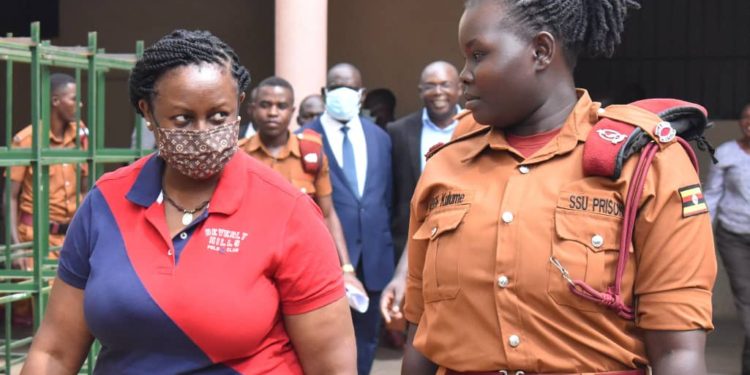The recent charges against Geraldine Ssali, Permanent Secretary of the Ministry of Trade, Industry, and Cooperatives, alongside her nefarious band of conspirators, is yet another glaring example of the cancerous corruption plaguing Uganda. This is not just a matter of abuse of office; it is a grotesque betrayal of public trust and a ruthless siphoning of national resources by those sworn to protect them. These despicable acts underscore the rotten core at the heart of Uganda’s governance.
Geraldine Ssali, in her corrupt splendor, stands accused of manipulating the system to include the Buyaka Growers Cooperative Society in the list for war loss compensation, a group that was never initially considered. This wasn’t just a bureaucratic oversight; it was a deliberate act of fraud. Ssali, along with Igara East MP Michael Mawanda, Elgon County MP Mudimi Wamakuyu, and Busiki County MP Paul Akamba, orchestrated a heist that diverted billions from the Ugandan treasury into their pockets. These actions were not isolated incidents but part of a sustained campaign of deceit stretching from 2019 to 2023.
The prosecution’s case paints a damning picture: Michael Mawanda, in October 2021, diverted 1.5 billion shillings for personal gain, while Wamakuyu Mudimi and Paul Akamba stole 2.3 billion and 200 million shillings, respectively. Not to be outdone, city lawyer Julius Kirya Taitankoko funneled 3.5 billion shillings into his accounts, money that should have supported the struggling Buyaka Growers Cooperative Society in Bulambuli District. Instead, it lined the pockets of these crooked officials and their cronies.
The audacity of these thieves knows no bounds. Julius Kirya Taitankoko further channeled over 911 million shillings to Rajnish Jain at Centenary Bank, a blatant act of money laundering intended to shield Wamakuyu Mudimi from the repercussions of his criminal conspiracy. Meanwhile, Leonard Kavundira, the Principal Cooperative Officer in the Ministry of Trade, compounded the treachery by coercing the Buyaka Growers Cooperative Society to abandon their legitimate legal representatives in favor of Kirya’s firm, ensuring their corrupt schemes proceeded unchallenged.
Geraldine Ssali’s actions as Permanent Secretary were nothing short of treasonous. By irregularly including the Buyaka Growers Cooperative Society in the compensation scheme, she violated treasury instructions and committed an act that she knew, or should have known, would cause substantial financial loss to the government. This was not a simple administrative error but a premeditated act of theft designed to benefit a select few at the expense of the many.
The sums involved in this scandal are staggering. Billions of shillings intended for public welfare have been siphoned off by these venal officials. This is money that could have been used to build schools, hospitals, and infrastructure, to improve the lives of ordinary Ugandans. Instead, it has been stolen by the very people entrusted with the nation’s development. This isn’t just corruption; it’s economic sabotage, an attack on the very fabric of our society.
The ramifications of this corruption are profound. It erodes public trust in government institutions, breeds cynicism, and fuels social unrest. When the guardians of the public purse become the plunderers, what hope is there for accountability and justice? The actions of Ssali, Mawanda, Wamakuyu, Akamba, Kirya, and Kavundira are a slap in the face to every Ugandan struggling to make ends meet.
Uganda cannot move forward with such parasitic elements entrenched in its governance. It is imperative that these individuals face the full force of the law, not only to punish them for their crimes but to send a clear message that corruption will no longer be tolerated. This is not just about justice for the billions stolen; it is about reclaiming our country from the grip of these corrupt elites.
The State House Anti-Corruption Unit and the Police have taken a significant step in bringing these criminals to book, but the fight is far from over. The rot of corruption runs deep, and it will require relentless effort to purge it from our system. The Ugandan people must demand more from their leaders, holding them accountable and insisting on transparency at every level of government.







Discussion about this post